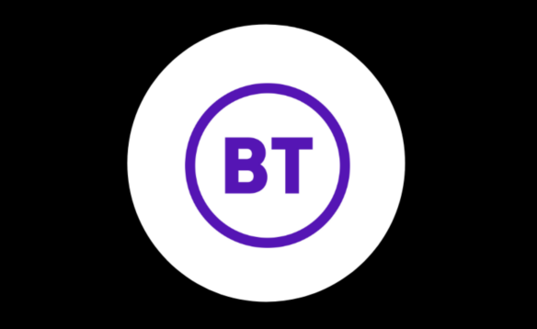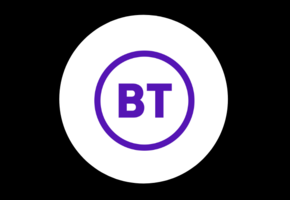Ahead of COP26 this Sunday, we are pleased to speak to Climate Group’s RouteZero COP26 Sponsor, BT Group, to discuss what actions it is taking to make the biggest difference to a bright, sustainable future.
Q: What is BT Group doing to cement itself as a leader for the transition to a net-zero economy?
A: BT has been a leader on climate action for almost 30 years. We set our first carbon reduction target in 1992 and our first science based target in 2008 – to reduce the carbon emissions intensity of our operations by 80% by 2020. We met that target for years ahead of time, and then became one of the first companies in the world to set a 1.5 degree aligned science based target in 2017 to reduce the carbon emissions intensity of our operations by 87% by 2030/31. BT uses 100% renewable electricity worldwide, which means all our networks are powered by 100% clean energy. Most recently we announced plans to curb our carbon emissions sooner than planned, by bringing forward our net zero target from 2045 to 2030 for our own operational emissions and 2040 for our supply chain and customer emissions. (including end-to-end Scope 3 emissions).
BT uses 100% renewable electricity worldwide, which means all our networks are powered by 100% clean energy.
BT uses 100% renewable electricity worldwide, which means all our networks are powered by 100% clean energy.
Q: What is BT Group doing to ensure that it is not only sustainable within its own operations, but also within its supply chains?
A: We engage with our suppliers on climate and environment in a number of ways. For example, we have introduced a sustainability contract clause into key contracts which require the supplier to reduce its carbon emissions over the term of the contract. We use our purchasing power by linking 15% of adjudication criteria to sustainability and human rights. CDP disclosure is an important way to engage with suppliers to think about climate action and we encourage them to disclose. BT runs a Game Changing Challenge where we ask suppliers to come an pitch their ideas on sustainable innovation that we can work together on – for example around circular economy and reduction of plastics. We worked with other 1.5 supply chain leaders to set up the SME climate hub to also engage with smaller businesses to join on the net zero journey.
Q: What is the role of zero emissions vehicles in Openreach’s vision for a net-zero future?
A: BT Group, including Openreach, operates the UK’s second largest commercial fleet comprising 33,000 vehicles and accounting for over two-thirds of our direct emissions. With around 27,000 vehicles in Openreach, they play a huge part. They plan to transition a third of their fleet to electric and zero carbon vehicles by the mid 2020’s and as a Group, we’ve pledged to transition the majority of our by 2030. In June 2020, we joined forces with the Climate Group and 29 companies to launch the UK Electric Fleets Coalition. Together, the coalition has taken a leading role in communicating the benefits of switching to electric vehicles (EVs) and has helped to shape the UK Government’s policy to end the sale of new conventional petrol and diesel vehicles by 2030. In 2021, the EV Fleet Accelerator (EVFA) was formed by the CEOs of BP, BT, Direct Line Group, Royal Mail, Scottish Power, Severn Trent and Tesco. In July, the group outlined how supportive government policy could help unlock private sector investment of £50bn in infrastructure and electric fleets in the UK over the next five years. The report found that switching to electric vehicles, alongside the rollout of a national charging network, would allow faster public adoption in the mass market and help to drive the second-hand market, which is the main market for most consumers.
In June 2020, we joined forces with the Climate Group and 29 companies to launch the UK Electric Fleets Coalition. Together, the coalition has taken a leading role in communicating the benefits of switching to electric vehicles (EVs) and has helped to shape the UK Government’s policy to end the sale of new conventional petrol and diesel vehicles by 2030.
In June 2020, we joined forces with the Climate Group and 29 companies to launch the UK Electric Fleets Coalition. Together, the coalition has taken a leading role in communicating the benefits of switching to electric vehicles (EVs) and has helped to shape the UK Government’s policy to end the sale of new conventional petrol and diesel vehicles by 2030.
Q: How is BT technology helping the transition to a low carbon economy?
A: BT’s networks can provide a digital backbone of connectivity, enabling smart technology that can drive positive outcome for the environment. We believe that continued innovation in products and services alongside the roll out of full fibre broadband to 25 million homes and businesses by December 2026 and the offer of high performance 5G solutions across the entire UK by 2028 will help underpin many of the innovative solutions needed to achieve a net zero carbon economy. At the same time, we will press ahead with plans to retire legacy networks such as the 3G mobile network by 2023 and the public switched telephone network (PSTN) by the end of 2025. Any residual emissions will be covered by high quality carbon offsets, which the company will invest in.
In the future, clean transport will be enabled 5G Connected Autonomous Vehicles (CAV’s) supporting the movement of people and goods. The Internet of things (IoT) will power smart traffic solutions and enable real time air quality and CO2 monitoring driving further climate action. AI already being used to today will play an even bigger role in managing our clean energy supply.
So that is why, when it comes to innovation, we committed to building a future-proof infrastructure, good jobs and a digital fabric on which to build smart climate solutions. That’s why we set out a new target to invest around £15 billion to build full fibre broadband for 25 million premises right across the UK by December 2026 alongside continued investment in 5G.
When it comes to innovation, we committed to building a future-proof infrastructure, good jobs and a digital fabric on which to build smart climate solutions.
When it comes to innovation, we committed to building a future-proof infrastructure, good jobs and a digital fabric on which to build smart climate solutions.
Q: How are BT’s products and services helping customers reduce their carbon emissions?
A: With a customer base of 30 million customers and one million SMEs, BT believes is well placed to help its customers and the wider general public cut emissions.
A recent study carried out by BT found that despite climate change being the third most important issue for people after mental and physical health, almost half believed that they were incapable of tackling climate change. However, BTs Smarter Living Challenge found that when households were given the tools and techniques to tackle their own emissions, they could make a huge difference. In some cases saving up to £938 and up to 1.7 tonnes of carbon dioxide equivalents (CO2e) if actions were sustained over a year.
In 2019, we helped our customers to avoid 13 million tonnes of carbon through existing cloud computing and video and teleconferencing solutions in 2019. We are working on developing new solutions that help reduce emissions, for example through our Green Technology Innovation Platform where we are working with two scale up businesses to develop solutions to help public sector customer reach net zero.
We also made some changes in 2019 that made it compulsory to return broadband routers to us after use, which has really boosted our recycling efforts. Thanks to these changes and the commitment of our customers, we’ve prevented the release of 11,430 tonnes of carbon dioxide, the equivalent of 6,000 flights from London to Tokyo.
Clive Selley CBE, CEO at Openreach will be speaking in the RouteZero: driving innovation forward on zero emission vehicles event November 9 at 5pm GMT. Apply to attend in-person at COP26 or register to watch the livestream here.

